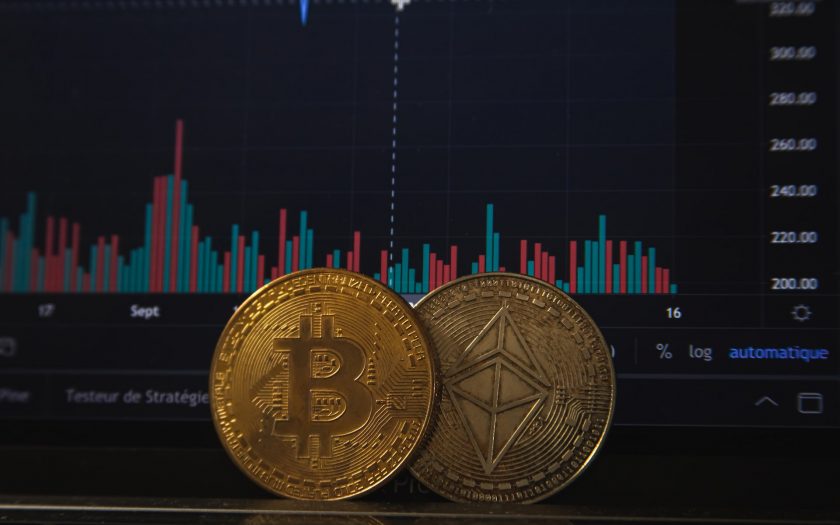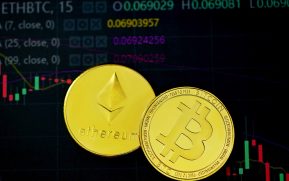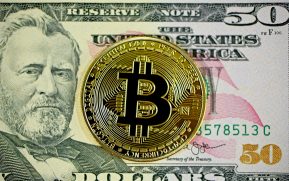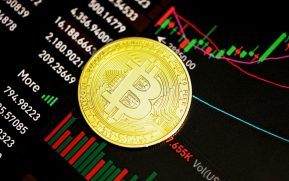
Search
By Jason Nelson
6 min read
"I'm part of the crypto skeptic community, I guess you'd say," said economist Paul Krugman, opening a 30 minute-long conversation with Binance CEO Changpeng “CZ” Zhao produced for a new MasterClass course.
Krugman perhaps understates his position on cryptocurrency and blockchain, last week penning a New York Times column in which he says the hype over cryptocurrency and blockchain technology is a “tragedy” that has resulted in “waste on an epic scale.” He certainly made an ideal sparring partner to CZ for the online class. MasterClass provided Decrypt access to the fifth lesson, which featured the pair of experts.
“Our rap has always been that we can't see what problem crypto is solving, what it really is doing that we aren't already doing, or how it can—to the extent there is a problem—solve it better than other more conventional methods," he said.
Education is key to adoption. Masterclass is one of the most engaging educational platforms in the world. I spent more than 6 hrs to shoot for this, mostly because I NG a lot. Also a nice poster they made. Really cool. 🙏 https://t.co/LMJ27cLpXU
— CZ 🔶 Binance (@cz_binance) December 8, 2022
Zhao responded by pointing out that the original concept of Bitcoin and cryptocurrency was to provide a new way to transfer value, the same way that the internet is a new way to share information.
"Bitcoin, specifically, is a slightly better form of money—it fixes some of the problems we have with money today on limited supply, not easy to use, not a lot of freedom, and not very low fees," Zhao said. "If you think about global commerce, international transfers, remittances, micropayments, et cetera.
“To be very frank with you, Bitcoin's first use case was imagined to be payments, but it hasn't taken off. But the other use cases have," he continued.
CZ pointed to the ability of crypto to raise millions of dollars in funding and income streams for artists using non-fungible tokens or NFTs.
"It is global fundraising; It is much easier for entrepreneurs to raise money globally," he said. "Using cryptocurrencies, a reputable entrepreneur can raise $10 to $20 million US dollars equivalent in crypto in a matter of days."
Can crypto still change the world? We asked leading crypto experts & a Nobel Prize-winning economist.
In this class, they'll dive deeper than ever before. Plus, in a MasterClass first, a debate: CZ vs. Krugman. https://t.co/RgrL6m93uo@emiliemc @cdixon @paulkrugman @cz_binance pic.twitter.com/ZBmHyulnOa
— MasterClass (@MasterClass) December 8, 2022
Krugman remained skeptical.
"I'm a little puzzled—it's not clear why blockchain should in itself make it any easier to raise money," Krugman said, noting the idea may only appear to have merit because of the popularity of crypto.
"I think the main big difference is the cross-borderness of this technology," Zhao said, citing the difficulty of making cross-border payments with traditional banking. "Blockchain offers that, and I think that's the main reason."
The Binance CEO pointed to the global differences in economic opportunities, citing the vibrant economy of the United States versus China, Vietnam, and African countries.
"It's very difficult for somebody outside of the U.S. to transfer money there because of the International SWIFT fees, et cetera," Zhao said.
"But [that isn't] not a technological issue, but a regulatory issue," Krugman countered. "Isn't it just basically just a way of sidestepping regulations that, for whatever reason, governments have thought were appropriate to put in place?"
While regulations are a part of the issue, Zhao said he believes it's more of a legacy issue and an issue with the high cost of sending money from country to country.
"There's nothing regulatorily prohibiting us from investing in a project, for a person in Dubai to invest in a project in South Africa," he said. "But the mechanics of doing that is very difficult for traditional financial services."
Zhao said that because technology is making the world smaller, entrepreneurs can access a global liquidity pool using blockchain technology.
"Why not simply reform the banking rules?" Krugman asked, comparing the issue to mobile phones and how two US carriers can have different policies for the same regions.
Krugman also questioned how long Bitcoin adoption has taken compared to innovations like the internet, saying that the argument that crypto is still new is getting old.
"If you want to compare it with the internet in 1995, by 2008, we were all living on the internet," " Krugman said. Bitcoin was created in 2009, 13 years ago.
Zhao acknowledged that Krugman made a good point but noted that the thing we now know as the internet was developed in the 1960s with the US Advanced Research Projects Agency Network or ARPANET, followed by the US military's use of email in the 1980s.
"The issue seems to be with governments and regulations rather than the technology," Krugman responded, noting that he’d become a believer in crypto if it could get him through immigration faster when he travels to Europe. Pointing to the ease with which travelers using Global Entry can enter the United States, he added, "The trouble is they're not transferable, and blockchain won't help."
Many crypto enthusiasts point to the 2008 financial crisis as why Bitcoin and the industry it birthed are necessary. But many have questioned how practical it is to expect the average person to understand the technology and its financial implications.
"What is interesting is, after 2008 and all of those disasters, and we responded not with education, we responded with regulation, we responded with Dodd-Frank, with stuff that basically tried to bring more of the financial system under the umbrella of prudential regulations," Krugman said.
"Wouldn't the lesson from all of that be not to expect high school students to come out able to understand all of that stuff that you're telling me about?" he asked.
"It's not black and white," Zhao responded. "I think, from a regulatory perspective, it is important for regulations to continue to evolve with new technologies, new industries, to protect consumers, I think that is needed.”
Zhao added that at the same time, people need to learn how to protect themselves.
"No solution is perfect. I'm not saying that education will solve all problems, [but it would] improve a little bit," Zhao said.
Krugman said there will be a gradual expansion of the regulatory net, adding that he believes that most crypto is used for regulatory evasion and avoidance. Even so, he thinks crypto will survive, "but they'll be indistinguishable from regular finance."
Founded in 2004, MasterClass, is an American online education subscription platform providing tutorials and lectures pre-recorded by experts in various fields. The "Crypto and the Blockchain" MasterClass course also features sessions led by Coinbase President and COO Emilie Choi and Chris Dixon, general partner at Andreessen Horowitz.
 How To Make Huge Profits In A Short Time With Crypto
How To Make Huge Profits In A Short Time With CryptoGet detailed training system that shows an absolute beginner (without any skill) how to make huge profits in a short time with crypto.
 Crypto + NFT Quick Start Course
Crypto + NFT Quick Start CourseThe #1 course for profit in the Crypto & NFT world - You will discover the secrets that 99% of people don’t know yet





